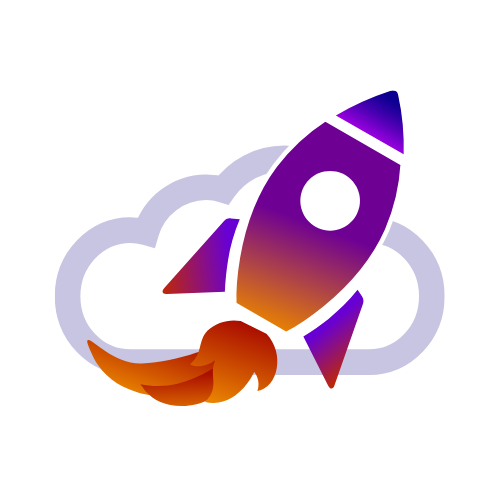Artificial Intelligence (AI) is no longer a futuristic concept it’s a reality that’s already transforming the world around us. From virtual assistants to self-driving cars and predictive analytics, AI is shaping how we live, work, and interact with technology. But what will the next decade look like as AI continues to evolve?
This blog explores how AI will reshape industries, economies, and human life and why understanding its future is essential for every professional and business leader.
Table of Contents
What Is Artificial Intelligence?
Artificial Intelligence refers to computer systems capable of performing tasks that typically require human intelligence. These include reasoning, learning, perception, problem-solving, and language understanding. AI systems use algorithms and data to make decisions, predict outcomes, and continuously improve over time.
Today, AI is categorized into two main types:
• Narrow AI – Designed for specific tasks, such as chatbots, recommendation systems, or image recognition.
• General AI – A still-developing concept where machines can understand, learn, and think like humans.
Artificial Intelligence in Today’s World
AI is deeply embedded in our daily lives. Whether it’s using Google Search, Netflix recommendations, or voice assistants like Siri and Alexa, you’re already engaging with AI. In industries, it’s being used for predictive maintenance, fraud detection, and personalized marketing.
But this is just the beginning. The next ten years will see AI evolve from assisting humans to collaborating intelligently creating a future where machines and people work seamlessly together.
1. AI in Healthcare: Smarter, Faster, More Accurate
The healthcare industry will experience one of the most significant AI transformations. Advanced algorithms are already diagnosing diseases faster than doctors in some cases. In the next decade, AI will assist in drug discovery, robotic surgery, and personalized treatment plans based on genetic data.
Imagine an AI system that predicts health issues before symptoms appear this is the future of preventive healthcare powered by big data and machine learning.
2. AI in Education: Personalized Learning for Every Student
AI will revolutionize education by creating intelligent learning systems that adapt to each student’s pace and learning style. Platforms will use AI to analyze performance and suggest personalized study plans, reducing the gap between fast and slow learners.
Virtual tutors, AI-driven assessments, and immersive learning environments in virtual reality will redefine classrooms, making education more inclusive and accessible worldwide.
3. AI in Business and Finance: Decision-Making Powered by Data
In business, AI will become a crucial tool for optimizing operations, analyzing markets, and automating routine tasks. From chatbots in customer service to algorithmic trading in finance, AI will continue to make organizations smarter and more efficient.
AI-driven predictive analytics will help companies make faster, data-backed decisions, minimizing risk and boosting profitability.
4. AI and the Workforce: Redefining Jobs, Not Replacing Them
One of the biggest debates surrounding AI is job displacement. While it’s true that automation will replace some repetitive jobs, AI will also create new opportunities in engineering, ethics, data science, and creative design.
The key lies in upskilling humans learning to work alongside AI systems. The next decade will see hybrid workplaces where AI handles routine tasks, and humans focus on strategy, empathy, and innovation.
5. AI and Ethics: Building a Responsible Future
As AI grows more powerful, ethical considerations become essential. Issues like data privacy, bias in algorithms, and job inequality need strong regulation.
Governments and organizations worldwide are developing AI governance frameworks to ensure fairness, transparency, and accountability. The next generation of AI must be trustworthy designed to serve humanity, not harm it.
6. AI and Sustainability: Building a Greener Planet
AI will also play a major role in addressing climate change and sustainability challenges. From optimizing energy consumption to predicting natural disasters, AI can help humanity make more eco-friendly decisions.
Smart agriculture powered by AI will improve crop yields while conserving resources, and AI-powered analytics will help governments design smarter environmental policies.
The Next Frontier: Artificial General Intelligence (AGI)
By 2035, we may witness the rise of Artificial General Intelligence (AGI) machines capable of human-like understanding and reasoning. While still theoretical, progress in neural networks and cognitive computing is bringing us closer to this milestone.
AGI could change everything from scientific research to space exploration unlocking new frontiers of innovation.
Useful Resources
To explore more about AI and its future, visit:
• OpenAI – Artificial Intelligence Research
• MIT Technology Review – AI Innovations
• Google AI Blog
Final Thoughts
The next decade of Artificial Intelligence will be a time of extraordinary transformation. AI will reshape how we think, learn, work, and live not by replacing humans, but by empowering us to achieve more.
As we move toward an AI-driven world, the focus should remain on responsible innovation ensuring that AI serves humanity ethically and sustainably. The future of technology isn’t about machines taking over; it’s about collaboration between human creativity and artificial intelligence.
Also Check Build a Powerful Chatbots in Python – Detailed Guide – 2025


1 thought on “Future of Artificial Intelligence – Comprehensive Guide 2025”